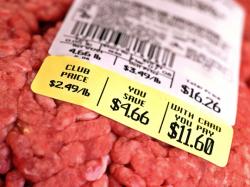Meatpackers Struggled To Sell Import-Labeled Beef
February 4, 2016 | 1 min to read

The cost of implementing country-of-origin meat labeling was not necessarily responsible for widespread discounting of imported cattle that forced lower prices on sellers, according to findings of a 2009 Agriculture Department investigation obtained by Bloomberg BNA.
Contrary to claims by meatpacking groups and cattle importers, the department's Grain Inspection, Packers and Stockyards Administration (GIPSA) found that reasons for the discounts were inconsistent and were partially based on a struggle to sell import-labeled beef to U.S. consumers.
Congress rolled back the labeling mandate in December as part of the omnibus spending law (Pub. L No. 114-113), in response to a World Trade Organization finding that the requirement unfairly discriminated against imports. Consumer and ranching groups have complained that Congress moved too quickly to repeal mandatory country-of-origin labeling (COOL), contending the decision was based on wildly exaggerated loss estimates from Canada and collusion within the meatpacking industry.
To read the rest of the story, please go to: Bloomberg BNA
